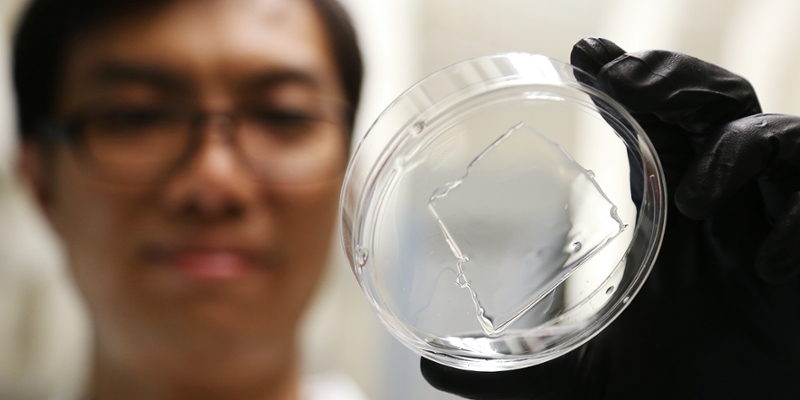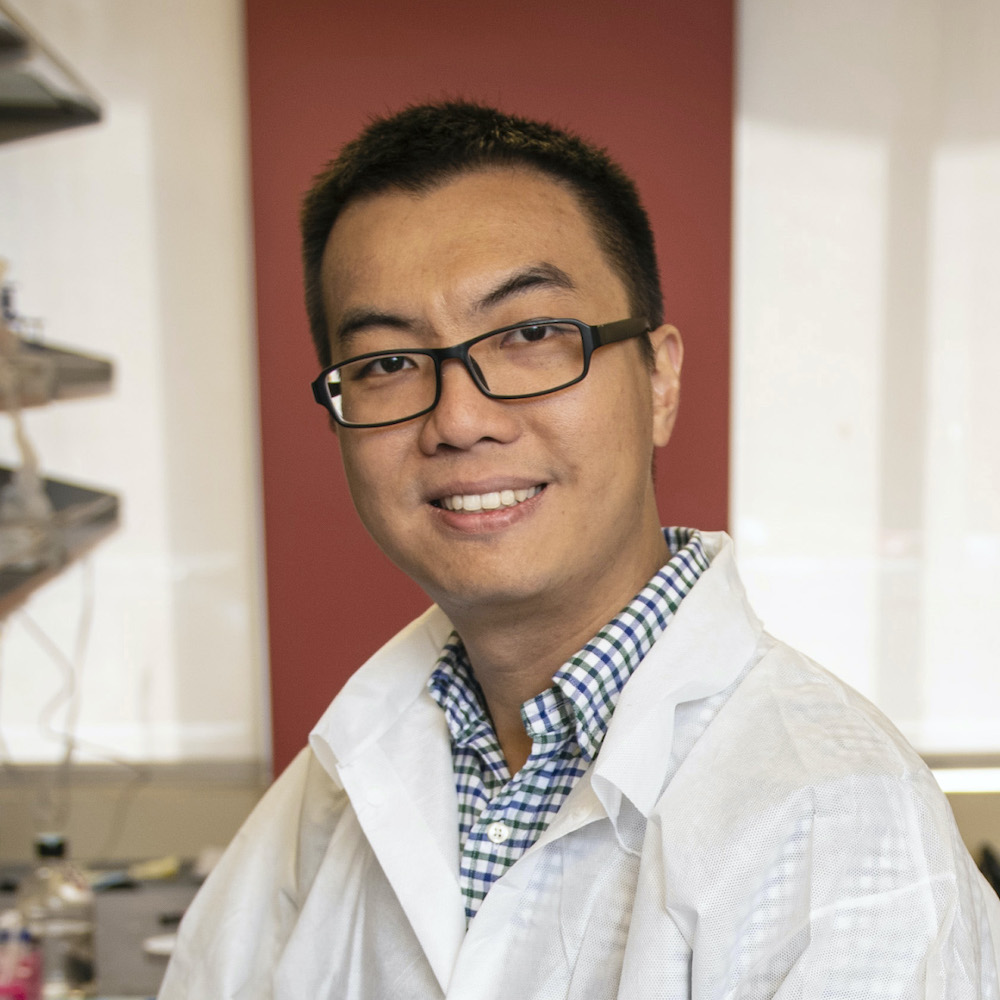Introducing Assistant Professor Yongxin (Leon) Zhao

The department welcomes Yongxin (Leon) Zhao, assistant professor in biological sciences, who is joining the faculty this fall. Zhao was most recently a postdoctoral associate at Massachusetts Institute of Technology (MIT) in the MIT Media Lab as part of the Synthetic Neurobiology Group led by Ed Boyden. He was also a visiting scholar in the Department of Chemistry at Harvard University in 2013, and received his doctorate in chemistry from the University of Alberta and a B.S. in chemistry from Sun Yat-Sen University.
Tell us a little about the research that you plan to conduct at Carnegie Mellon.
Biological systems, such as our bodies, are complex machines assembled from molecular building blocks in a highly precise manner. These molecular building blocks interact with each other, forming hundreds to thousands of separate functional clusters across multiple scales, from molecular, to subcellular, to cellular, and to tissue-wide level. How can we study and understand such complex biological systems? To help address this intractable challenge, I am directing an interdisciplinary research program to develop novel imaging techniques for visualization and interrogation of biological and pathological processes in cells and tissues. My research program focuses on two aspects: 1. to develop new tools based on Expansion Microscopy for mapping structural and molecular properties of complex biological systems (i.e., to obtain the blueprint of the system); 2. to develop genetically encoded biosensors for probing dynamics of biological processes (i.e., to visualize how each gear works in the system).
What are some potential implications from your work?
New imaging techniques/tools enable researchers to visualize and interrogate biological components and processes that are inaccessible before. For example, Expansion Microscopy allows us to map 3D organization and interactions of biomolecules inside physically expanded cells and tissues with nanoscale precision, using only conventional light microscopes; Genetically encoded calcium ion biosensors reveal real-time neuronal activities by visualizing the calcium signaling events. These new techniques will have a very broad impact on many fields, such as neuroscience, pathology, microbiology, and pharmaceutics, and in the long run, they will help foster and develop new diagnostic and therapeutic approaches for complex diseases.
Where do you see your field of research heading?
We are entering into the exciting new era of biophotonics. The emerging novel imaging techniques have been transforming many fields in biology and medicine. In the next 10 years, I think Expansion Microscopy will continue to evolve and increase its impact on neuroscience and pathology, and we will also see new diagnoses based on the principle of Expansion Microscopy. As for genetically encoded biosensors, many more variants measuring highly specific biological events will emerge, enabling researchers to visualize selected signaling pathways and to gain new biological insights into our health and disease.
What part of coming to Pittsburgh, Carnegie Mellon and the Department of Biological Sciences are you the most excited about?
The rich history of innovation, the talents, and openness to new technologies make Pittsburgh a wonderful, world-class innovation hub. Our department and the rest of CMU are part of this great community providing the supportive and collaborative environment for highly impactful work. As a tool-development scientist, I am thrilled to be surrounded by world-class experts and collaborators from a diversity of backgrounds, such as neuroscience, medical science, microbiology, engineering and computational science, etc. Within the walking distance, I can easily find collaborators who are willing to brainstorm ideas and collaborate on bold projects.
When you are not in the research lab, what do you do?
I spent most of my spare time with my family. I love listening to music, especially New Age music. I also like reading, hiking and traveling with my family.
Top photo: Zhao looking at a transparent and expanded kidney specimen. Expansion Pathology might sound like a science fiction, but it is real and it is going to be further developed here at Mellon Institute.
